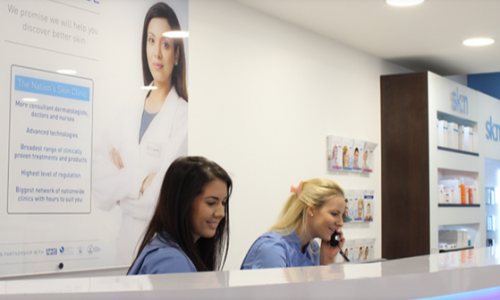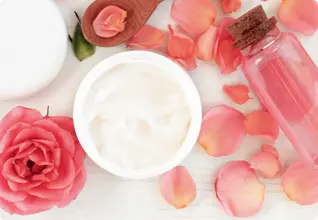Is your commute ageing you? The toll of city living on our skin.

In light of recent changes to ultra-low emission zone and a greater focus on pollution reduction in urban areas, the latest Government air quality statistics show pollution is improving but issue red flag over rush hour spikes
Statistics released by The Department of Health today (25.04.19) have shown generally pollution levels are improving in cities across the UK but rush hour still a cause for concern with pollution concentration as much as 20 per cent greater during the working week, compared with the weekend. As well serious environmental implications and health consequences, pollution can have an ageing impact on our skin. But just how much do us Brits understand about the effects of pollution and how to protect our skin from it?
New insight from leading skincare clinic group sk:n has shown that whilst 78% of people across the UK are concerned about the effect of pollution on their skin, only a tiny 23% know how to protect their skin from harm. And when it comes to Londoners, a staggering 75% feel their commute has a negative impact on the condition of their skin.
Consultant Dermatologist at sk:n, Jinah Yoo explains more:
“There are several mechanisms by which air pollution can affect the skin. Ozone, which is one of the major air pollutants, generates free radicals (a toxic by-product of oxidation) which leads to a reduction in the antioxidants in our skin, as well as disrupting collagen production and destroying the skin’s barrier. As a result, it promotes skin ageing.
“With long-term exposure to air pollutants, you may see the signs of skin ageing which will appear as wrinkles, brown spots, uneven skin tone, dehydration and loosing elasticity of the skin.
“Air pollutants also cause skin inflammation and increased pigment production. Some studies have shown pollution can result in up to a 50% reduction in skin microflora, which are group of microorganisms living on our skin to protect against harmful bacteria.
“What’s more, some of the air pollutants are small enough to penetrate into pores which can be trapped and cause acne-like spots.”
The report also highlights that as we enter spring and summer, concentrations of Ozone peak due to prolonged hot and sunny conditions, with exposure increasing in urban living in 2018 compared to previous years.
With 83% of Brits[1] Rural Economic Bulletin for England, May 2018
living in urban areas, Jinah offers here advice for how to protect your skin against pollution.
“There are four important daily skincare steps you should consider: deep cleansing, antioxidant application, moisturiser and sunscreen.
“Firstly, deep cleansing at night will help to remove pollutants accumulated on the surface of the skin during the daytime.
“After cleansing, application of an antioxidant cream containing vitamin C and E, which inhibit free radical formation, will help to delay the skin ageing process caused by extrinsic factors such as air pollution or UV. However, choosing the right antioxidant and using it correctly is important. Vitamin C cream comes in various concentrations (5-20%), it is best to start with a low concentration, then gradually increase the concentration as starting with high strength can occasionally cause skin irritation. As vitamin C oxidise quickly, storing in a cool, dark place with tightly sealed container and looking for a product containing ferulic acid with vitamin C and E which improves stability of antioxidants can reduce the concern over stability. Antioxidants need to be used for at least 6 months before seeing any significant improvement.
“Keeping the skin well-moisturised will also help to maintain intact skin barrier. And finally, using sun cream which contains UV and visible light block will help to reduce signs of skin ageing.”
Whilst maintaining a good daily skincare routine will help protect your skin from damage, there are a variety of treatments that can help improve skin pigmentation and tone whilst rejuvenating the skin. sk:n operates on a case-by-case basis, providing free aesthetic treatment consultations for every patient with a trained medical specialist.
[1] Rural Economic Bulletin for England, May 2018
Related Articles

08
Apr 2024

08
Apr 2024
Request a callback
One of our friendly sk:n advisors will call you to book your consultation.
- More than 450 consultants, doctors, nurses and medical practitioners
- Regulated by the Care Quality Commission, Health Inspectorate Wales and Health Improvement Scotland
- Partner of the NHS
- Rated excellent by our clients on Trustpilot
- Strict safety and care protocols




